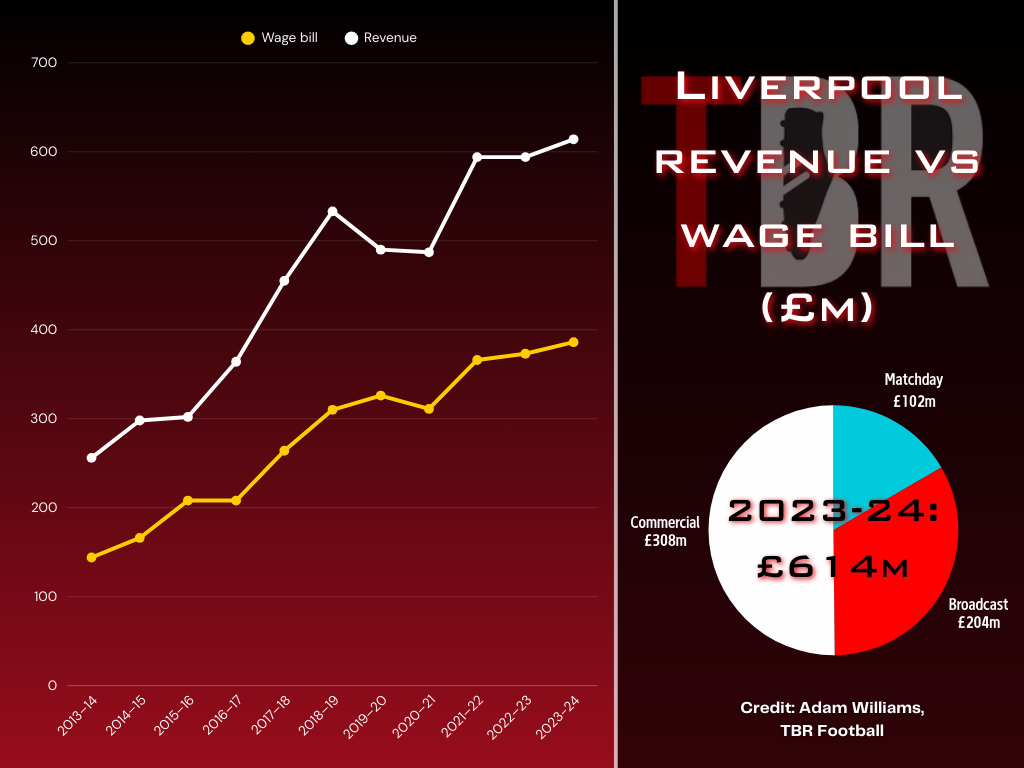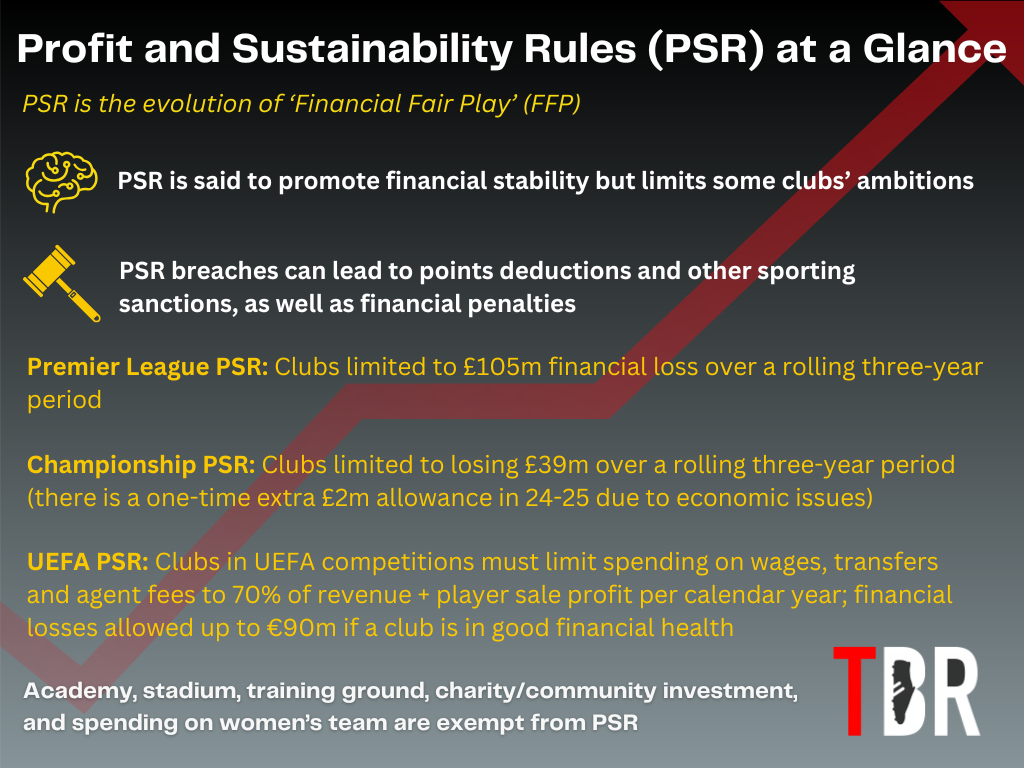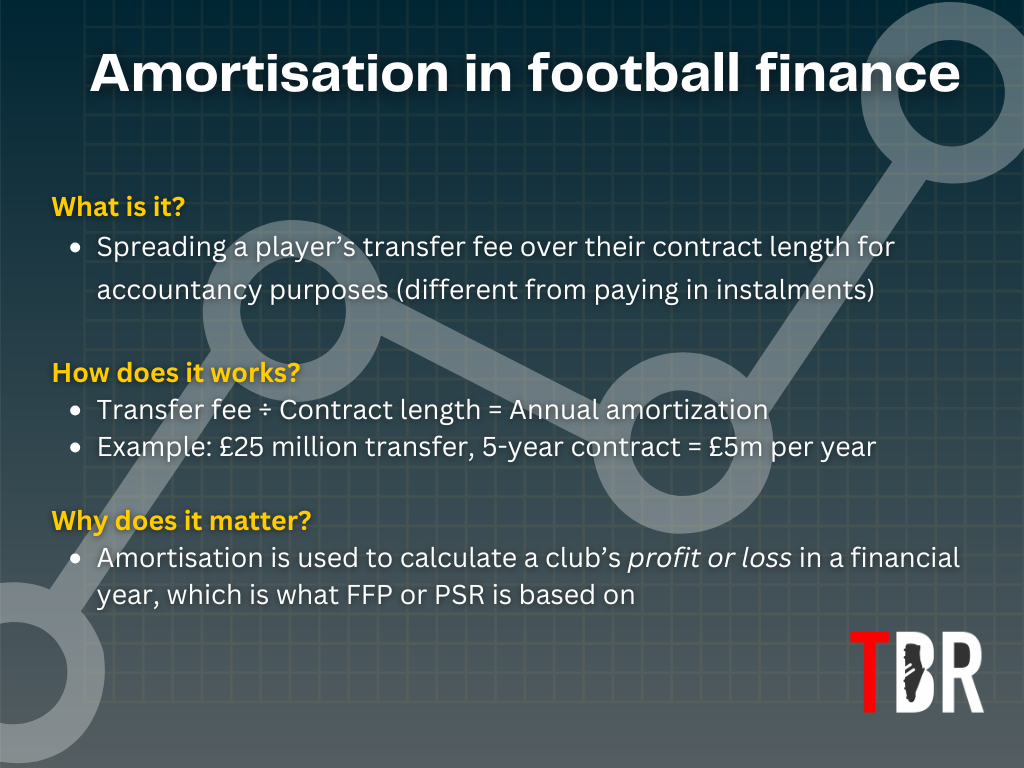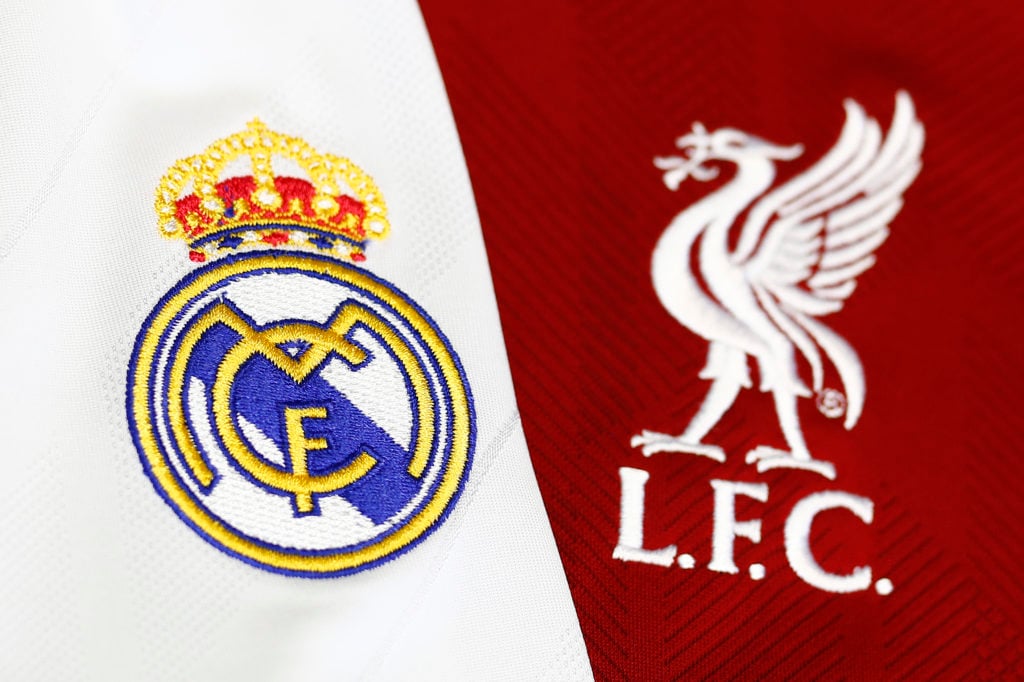Trent Alexander-Arnold has been seduced by Real Madrid’s siren song and, even as one of the world’s richest and most powerful clubs, Liverpool been reminded of their place in football’s food chain.
Even in an age when sporting decisions are made by trillion-dollar private equity firms and state leaders in Gulf palaces, the game’s established order is remarkably resilient.
Liverpool’s revenue was £614m in 2023-24, which was the eighth-largest in the world despite a lack of lucrative Champions League football that season. Real Madrid, the planet’s richest football club, earned almost £900m in the same period.
Liverpool’s wage bill meanwhile was £386m, a fair way short of Real’s £425m. Trent Alexander-Arnold is expected to earn significantly more than his reported £180,000-a-week salary at Anfield even before bonuses and image rights are factored in at Real Madrid, whose basic payroll will swell as a result.
A lot is made of Liverpool’s cost control during the last 15 years of FSG ownership, which has coincided with an unprecedented period of inflation in the football finance ecosystem. Come rain or shine, their wages-to-turnover ratio barely budged from 60-65 per cent.
Their restraint has been impressive, particularly as they have consistently competed for trophies in that time. But Real Madrid? Their revenue is so high that they can get away with a wages-to-turnover ratio of 48 per cent. For context, that’s not much higher than Tottenham, who are often characterised as spend-thrift in the extreme.

Credit: Adam Williams/TBR Football/GRV Media
Incidentally, the Reds are said to be demanding a compensation fee and for Alexander-Arnold to forego his remaining wages if they are to release him for the Club World Cup this summer, which starts 15 June, two weeks before the official end of the 26-year-old’s contract.
Regardless of when he officially departs, Fenway Sports Group have lost not only one the most unique talents in football but also a money-can’t-buy marketing asset. Alexander-Arnold gave a Boston-financed club a Scouse accent.
For Liverpool fans, it was a rare local story for an increasingly globalised club.
That’s why, when the right-back sat down with a performative sigh to read his obligatory, mawkish farewell video message over cloying piano chords, many supporters simply weren’t having it.
As far as FSG are concerned, the body language of John Henry, Michael Edwards and Richard Hughes in conversation with Alexander-Arnold a their Premier League title coronation against Tottenham suggested that the top brass hold no grudges.
For Liverpool fans – or a sizable contingent of them, at the very least – that doesn’t appear to be the case.
And the bitter taste is made all the worse when one examines the financial repercussions for the club.
- READ MORE: Arne Slot needs to sell £40m Liverpool player who failed to take his chance against Chelsea
Real Madrid’s January bid for Trent Alexander-Arnold would have unlocked £200m PSR headroom
First thing’s first, Liverpool have no PSR problems.
Profit and Sustainability Rules (the Premier League’s system) and Financial Sustainability Rules (UEFA’s equivalent) hold Liverpool to different standards, with the European model slightly more limiting.
That might not always be the case, though. Liverpool are expected to spend heavily this summer, to replace Alexander-Arnold and allow Arne Slot to regenerate an aging squad.

Performance-related bonuses mean their accounts for the current campaign are likely to show the Premier League’s highest wage bill, while they have also committed probably in excess of £70m to Mohamed Salah and Virgil van Dijk’s contracts over the next two years.
Once that pair – who are 32 and 33 respectively – are gone, Liverpool will have to go big to replace them.
The club lost £62m before tax in the last financial year meanwhile, which was the biggest deficit of the FSG era. They will swing back to a healthy profit this season, though that will be largely attributable to modest player trading.
In short, while FSG have been the ultimate champions of the self-sufficient business model in football, it’s conceivable that they could one day find themselves flirting with the upper limits of PSR.
When other clubs have walked this tightrope in recent seasons, the sale of academy graduates has been a go-to workaround.
Why? Because player trading profit (which is what count towards a club’s bottom line, which in turn is what PSR is based on) is determined by a player’s book value in the accounts at the point of sale.
A player’s book value is their transfer fee divided by the years remaining on their contract. This is ‘amortisation’.

Credit: Adam Williams / GRV Media / TBR Football
A £50m signing on a five-year deal, for example, has an amortised book value of £50m in year one, £40m in year two, £30m in year three and so on. If the club sells the player for £50m in year three, they make a £20m profit on the sale – i.e., £50m sale fee, minus his book value of £30m.
For academy players like Alexander-Arnold, however, there is no book value as Liverpool paid no fee to bring him to the club. Any sale fee, therefore, is ‘pure profit’.
So had Liverpool accepted Real Madrid’s £20m bid for Alexander-Arnold in January, their PSR headroom would immediately have increased by £20m.
And because the fees of any incoming signings are amortised over five years, they could have made £200m worth of signings in the January window with a net neutral impact on their PSR headroom this season – i.e., while £40m would hit the balance sheet next season, only half of that figure would have counted towards the PSR calculation in 2024-25.

Of course, it isn’t a free hit as Liverpool would have to pay the wages of £200m worth of signings, as well as covering the amortisation costs over the next five years. However, it does illustrate how valuable an asset they have lost for free in Alexander-Arnold.
- READ MORE: Robbie Fowler tells Arne Slot to sign ‘tremendous’ striker if Liverpool can’t get Alexander Isak
Who could Liverpool sign to replace Alexander-Arnold?
With silly season around the corner and the will-he-won’t-he saga involving Alexander-Arnold over, talk has naturally turned to who Liverpool could sign to replace the right-back.
Conor Bradley, 21, is seen in some quarters as a natural successor. He has deputised for Alexander-Arnold on the right of Slot’s back four on 26 occasions this season and, as another academy product, would be a no-cost option.
TBR Football understands that Bayer Leverkusen’s Jeremie Frimpong is admired by Arne Slot, who has placed him on his right-back shortlist. His pace and dynamism would be a different proposition to Alexander-Arnold’s technical creativity.
The Dutchman seems the most likely candidate if Liverpool look outside the club, though they have also been linked with the likes of Inter Milan’s Denzel Dumfries and other options on the continent in the past.








